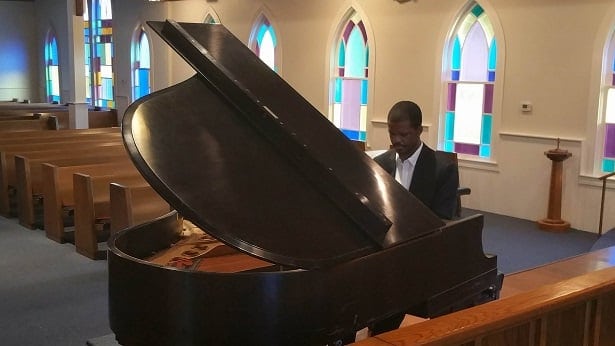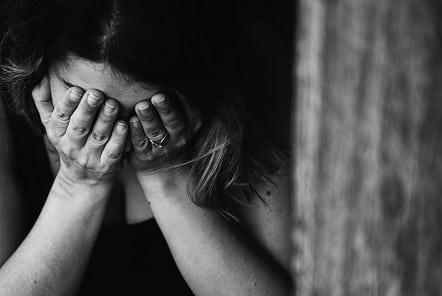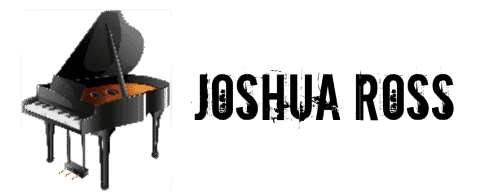As an Amazon Associate I earn from qualifying purchases.
Music is one of those things that is a joy to do no matter the setting. I can remember the first time I touched a piano and how exhilarating the feeling was. My lessons were always great and my practice at home always felt solid. Even throughout college I had this great feeling about how my performances would go if I had to give one that very day.
There is one particular college piano performance that sticks with me to this day though. I felt amazing about the whole thing because I had prepared and knew the music inside out. As I walked across the stage to the Steinway concert grand something something weird began to happen. Something I had never truly felt before.
I gave my professional bow just like I practiced and I sat down at the keys and took a huge deep breath. As I lifted my right hand to strike the first note everything started to feel completely off to me. My chest began to beat at an alarmingly fast pace. There was this abnormal shaking happening in both hands that I couldn’t control.
Then I started to forget passages of music; really simple ones! I started mishitting notes that I had practiced for hours to nail and it felt like the entire ship was going to get away from me. You could feel the panic on my face as I finished the first piece, bowed and left the stage. For the first time a simple 4 minute piece by Bach felt like an eternity to conclude.
I distinctly remember my piano professor coming back stage to check on me. She asked me how I was doing and said she could see how uncomfortable I was. In that moment she told me to take my time, regroup, and be confident in what I could do. So I took her advice and did just that. I walked back out onto the stage and finished the rest of a difficult recital program that included Chopin and the all too difficult Ginastera Piano Sonata No. 1; all without crashing and burning!
That my friend is called performance anxiety. We deal with it in all areas of our professions whether we’re doctors, lawyers, athletes and yes even pianists. This was really my first experience with it, some 17 years into playing the piano.
Want to Learn Piano?Click Here

13 Tips For Overcoming Piano Performance Anxiety
Overcoming piano performance anxiety is not easy at all. Many folks will tell you that it is, but we all handle the task differently. Having been through the experience and overcoming it mid recital I set out on a task to conquer it. I want to share some tips for overcoming piano performance anxiety with you below in hopes that it helps you do the same!
1. Understand That It’s Coming
I had always experienced some form of performance anxiety growing up, but I didn’t know what to call it. It was always just this weird tingling feeling in my body that I couldn’t really explain. Once I had that college recital and it overcame me for a brief moment I realized I needed to be real with myself and understand that it was coming.

Trying to suppress performance anxiety is probably the biggest mistake one could make. It’s a natural part of live performance and the adrenaline that comes with it helps in many ways. Without it the creativity and musicality in your performances will be lacking.
No one wants to hear you sound like a perfect computerized robot who doesn’t miss notes. People come to performances to listen to wonderful melodies, be engaged, and to be taken on a musical journey. Having a little bit of that adrenaline flowing through you is a big part of it. Learning how to control it is where your efforts are better served, not trying to get rid of it.
2. Remain Focused
When your body is reacting to those weird feelings it’s tough to keep focused on the music. I look at performance anxiety as merely a distraction. If you find yourself staring down your fingers as they tremble, that’s not going to fix anything. What that will do is take your mind off which notes are coming next. On top of that the music starts to lose character and a dull performance often results.
Remaining focused is not easy, and you’ll need to train yourself to be committed to doing this. There are so many notes flying through your head and dynamics that you can’t be concerned with feeling nervous. When I start to get that feeling I’ll quickly recognize it and then say to myself “here it comes, now let’s continue with the piece”. That’s really it. If I ignore it and pretend it’s not there I end up getting distracted the most.
3. Turn Negatives Into Positives
For some of us, the anxiety doesn’t settle in until after we’ve made some kind of mistake. That can be a note we skipped, a note that was hit in error or even a catastrophic butchering of a few measures. In this case piano performance anxiety roars loud and eager to derail the rest of the performance.
What you have to come to terms with early on is that it’s entirely possible that those kinds of mistakes can happen; even if their not likely to. What you can’t do is let it take over the rest of your performance. Mistakes should be worked into your overall performance and not take command over the rest of the piece.

If your hands fall off the rails, take a deep breath and bring them back and continue making beautiful music. If you miss a note badly simply let it go and aim to make the next passage a thing of beauty. For me it’s all about how you rebound.
When I miss notes I’ll quickly process it but then move right along. Sometimes I’ll just keep plowing ahead as if it never happened. Any energy you put towards analyzing why you missed those notes and looking at your finger placement and all of that will take away a great deal of focus from what the task is at hand. In practice that might be fine, but surely even there you have to get used to playing through those tough situations.
That’s not easy to do, especially when you’ve worked so hard in the practice room and want everything to be just right. Rather than look at the mistakes as negatives I look at them as positives. Sure the C should have been a D-flat, but aim to make it the most beautiful D-flat in the history of piano playing.
That’s the mindset you need to go with. Even some of the greatest pianists in the 20th century made plenty of mistakes that made it on to records. We regard those recordings as some of the best ever despite those mistakes! It’s not what you miss, but it’s whether you moved someone with passionate music making and technical control.
4. Practice Landmarks
One of the toughest pieces I’ve ever played was the Chopin Andante Spianato & Grande Polonaise. It’s a gorgeous composition, but also a massive one in terms of notes, technique required and depth. Because so much was happening in the music I felt it was a good idea to place landmarks throughout the piece.
Landmarks are a great way to help alleviate some piano performance anxiety, especially when memory starts to fade and you become uncertain. This allows you to jump immediately to the next nearest section in the piece and continue playing on.
These landmarks can be made in obvious transitional passages, where new chords are struck and more. It’s really up to you how many you make, but I would keep it quite limited. As you study your piece in practice consider making these landmarks near sections where your memory gets fuzzy. Other great sections are where your fingers are likely to get jumbled or just where you’re uncomfortable.
As a general rule, don’t ever jump backwards and never jump too far forward. The last thing you want during a performance or audition is to cut out 8 measures of music just to hit your nearest landmark. Instead fight your way through the tough sections and when that landmark comes approach the measure with confidence, a rich tone and laser focus.
The idea is for landmarks to set you up to succeed throughout the rest of the piece, and they should be areas that you are comfortable with. I use landmarks to build my confidence throughout the piece whether I messed up beforehand or not.
5. Play For People
Making recordings is what works for me personally, but for some of us playing for people yields better results. I mentioned this idea in my list of piano audition tips and think it holds true across the board.
For this step I would go all out. Get dressed up, set your schedule for the day and invite people over to your home to hear you play. If you want you could rent out a local recital hall or high school auditorium and do the same thing.
Growing up I had access to auditoriums and also fantastic friends at my local Steinway store. Whenever a performance was coming up I would reach out to them and just ask to come by the store and play for them.
Those little performances got me ready for the big ones and helped me get a taste of the performance anxiety. In those situations the stakes aren’t as high, so it’s an opportunity to test drive my body and see how it reacts.
Who you play for doesn’t matter so much, but if you can get a professor or distinguished music educators in the area to listen to you that would go a long way. Knowing your playing for an audience who really understands music and performance will give you that extra nudge to be your best. Besides, the feedback they can provide to you will be worth it.
6. Read A Good Book
I love to read because it gets my mind off of things. It’s a calming experience and right before a piano performance is where something like reading is most beneficial.
Don’t read just anything though, obviously horror or something stressful wouldn’t be helpful to you. Instead you should read books that have a positive message. Self-help books like this one are a great start. Anything that talks about being positive and being in a good mood is perfect.
For pianists there are some great books specifically about performance anxiety too that I think you would benefit from. The Psychology Of Music Performance Anxiety is a really great read.
A friend of my gave me this book while I was studying in college and it really helped me get from under the piano performance anxiety bug that was hindering my performances. It also gives some fascinating perspective on how others have achieved solid performances and some common trends.
This book by Don Greene is also great not just for musicians, but anyone who deals with immense pressure to be their best during performance.
7. Make Recordings
The closest I’ve gotten to mimicking any performance anxiety is through recording myself. Recordings are a little different than live performance because every detail is heard. If you planned to distribute that recording via YouTube or CD then you want it to be your best. That’s the same kind o pressure that you feel when doing a live performance even through the circumstances are different.
Obviously with recordings you can repeat as many takes as you need to, but the quest for perfection remains the same. You would be surprised how many pianists don’t record themselves until it’s time for an audition. If you did it regularly then it would prepare you mentally.
The other huge benefit I get from recordings is hearing and seeing where the piano performance anxiety is occurring. Although you feel it while you’re playing identifying what causes it is not always that obvious.
When I look back at recordings I can see all sorts of interesting things happen. On the Beethoven Pathetique Sonata for example I can see my elbows tighten right before the fast passage run just before the sixteenth notes come in. That’s no accident!
After watching the tape I went back and when I got to that section made mental notes to be free and open. Now I don’t get nervous anymore when playing that piece. Without a recording it would’ve taken a long time for me to discover that this was indeed the culprit.
8. Prepare In Detail
Anything that a pianist wants to play in public should be prepared in detail. This goes beyond just knowing the notes. The music should be heavily marked with notes on dynamics, cues, landmarks, and even what to do physically with your arms and body. Everything you do should be choreographed so that you can try to replicate it the best you can.
The last thing you want is to walk on stage and then start doing things you don’t normally do. Usually this happens when a pianist has practiced a piece a lot but has effectively been disengaged during those practices.
It’s really easy to sit at a piano for 3 hours a day and not get anything done. When you prepare in detail that effectively rules out that kind of thing from happening. It forces you to think not only about the notes, but how you plan to get there step by step. Every time you sit down to practice you should be working all aspects of the music. 99% of the time performance anxiety takes over because we’ve neglected the other 1% of preparation.
We’ve neglected the bench height, how high to raise the arms, marking in the exact places to release the pedal and more. All of that comes back to bite you in the form of uncontrolled nervousness. That’s simply because it’s the stuff we prepared for the least! I find this to be an easy fix for most, but it takes time and diligent work. What might not seem like a big deal now will surely be one later if it’s neglected.
9. Take Advantage Of Dress Rehearsals
This is a tough one, especially if it’s a college audition. On the other hand if you’ve got a recital coming up and everything has been worked out then it really makes no sense to skip this step.
All pianos are different, model to model and year to year. What you do at home or in a practice room will sound completely different in the recital hall. Take the time to practice on the piano in the recital hall as much as possible. As you play you should be taking notes of what sounds different and what feels different.
A hall is bigger than a practice room, so certainly the resonance is going to be greater. Perhaps the piano has a stiffer action and you need to slow down your tempos. Maybe the lid ought to be closed rather than open. These are all things that you don’t want to be figuring out mid-recital.
On top of the piano itself you need to be comfortable with the lighting and the location of the instrument too. I’ve played in some recitals where the lighting was one way and then later that night it was another. In fact a recent recital of mine in the Northeast had a situation where the lights kept flickering on and off! Had I had a true dress rehearsal that could have been fixed much sooner right?
If you can figure all of that out and let the stage crew know of your concerns early, then things will go much smoother. Performance anxiety is just as much a product of outside influences as it is your own personal preparation. Outside issues like lighting and different pianos makes you anxious and uncomfortable when you have not had time to be with it.
Having a dress rehearsal makes a big difference on your confidence. You’ll be heading into the performance knowing exactly what to expect, how things will look and sound.
10. Try Performing Regularly
I always suggest this to my students because it’s a solid strategy. The more you perform, the better it is for conquering performance related anxiety. For young pianists this is particularly important because your chances to perform are so limited.
These days many organizations offer group lessons, competitions and performance forum sessions. This allows students several chances to perform throughout the year; not just once or twice. Performing more will help you identify what works for you and what doesn’t. After a while you’ll start to notice trends in the performance.
When things go right you’ll see some consistency there, and when they go wrong the same as well. Use each subsequent performance to weed out those errors, make changes and try new things. For me I like to pad my major performances with smaller performances around it. This way i have plenty of chances to work out the kinks and test new repertoire as well.
11. Take A Walk
Adrenaline is great for being musical, but too much of it can cause anxiety. What I do now is take a walk before every performance. I’ll either drive over to the local park and do this or around my hotel room if I’m on the road. This walk allows me to release all of that extra built up energy. Sometimes when you have all of that adrenaline you feel under so much pressure to just get the performance done and over with.
This usually translates to rushing tempos, muddy passagework, and of course many missed notes. Adrenaline is a beast you have to tame during piano performance, so being active is a nice way to get rid of it. You don’t just have to take walks though. I know some pianists who do exercises like jumping jacks and squats.
Others might shake their hand out before starting each piece. Another method my old professor used to use was to talk to the audience about the piece in detail before performing it. Just giving himself those 2 minutes or so to engage with the crowd gave him a chance to calm down and let his heart beat settle before he began playing. There’s all kinds of ways to go about releasing those nerves, so experiment a little here!
12. Get Plenty Of Rest
Staying up the night before playing Fortnite might not be the best idea before a piano performance. Studies on sleep like this one have shown that sleep is essential for better performance. I can vouch for this too. The day before a show I always make sure to practice a reduced schedule, and then I take a 2 hour nap. After the nap I’ll play a little more and then get to bed by 8PM.
On the day of the show I sleep in until around noon, get up and shower and then head over to the recital hall. Being well rested is absolutely key in the art of performance. I know that when I sit down that I can handle anything because I’m so well rested. There’s never a worry in my mind about being tired or disengaged and I’m always alert too.
13. Don’t Over-Program
My last advice comes directly from the recital I began this article talking about. There’s no greater initiator of stress than programming way too much music. In this recital I had “all of the hits” you can say. Chopin, Ginastera, Bach, Beethoven, Rachmaninoff, Liszt it was just too much to handle.
I knew that every piece was massive, but at the time I thought showing off all of my skills would be a good thing. The problem is I had not prepared well enough to handle the workload.
As you put programs together for either you or your students this always needs to be kept in mind. When we over-program performance anxiety almost certainly occurs. Doubt might creep into your mind about your ability to handle all of the music among other things.
More difficult repertoire is naturally going to take more time to learn. Rather than putting five difficult pieces on a program consider picking 2 and then surrounding that with 3 supplemental pieces. Think strategically about the program and what it is you’re trying to achieve. Maybe if you want to achieve all five then plan that recital for another time.
What To Do Next
I hope that you’ve found this article helpful. Conquering piano performance anxiety takes some time, so don’t expect this to be an overnight fix. Most of what I suggested to you is a gradual process, and it’s something that you or your students have to fully buy into.
It all starts with being well prepared, programming smartly, and then executing the music to your best abilities. It’s hard to not get caught up in being perfectionists, especially with all of the access to YouTube seeing child prodigies and the best of the best do work. While all of that is fascinating you have to focus on yourself and measure your success against that and nobody else.
Confidence is key, and the only way you get to that is through your practice habits, getting to know the instrument, trail and error, resting and committing to a well structured program. There’s really no secret mental tricks you can do, you just have to embrace a focused mindset to get the results you seek.
Performance anxiety will always be there, but that’s a good thing. Control that energy and channel it to the right places and you’ll be just fine! I recommend checking out the books I mentioned earlier which give great perspective on how to calm our minds before performing.
Hello & thanks for stopping by! I’m a professional concert pianist and piano instructor. In the United States, I’ve given successful performances in several places including New York, Florida, Connecticut, & New Jersey, I have also performed internationally in Italy and made my Carnegie Hall debut in 2014. I enjoy blogging about the piano, the art of performance, general music, current events and the latest in music production.
